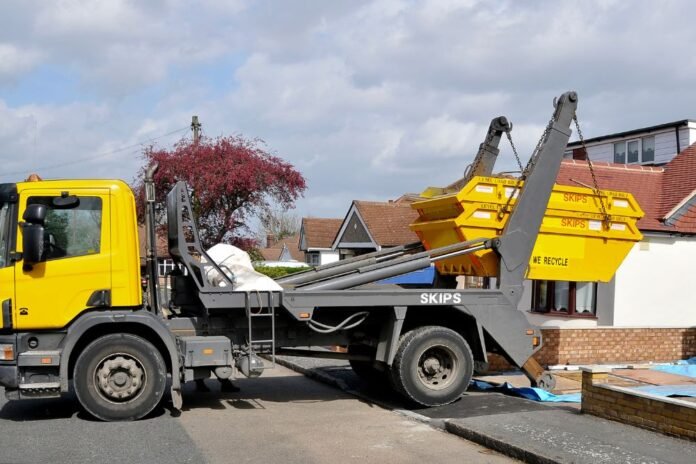Oh, the glamour of bin hire! Not a typical subject for design enthusiasts, one might think, right? Yet, we are much mistaken if we overlook this essential aspect of our home improvement or landscaping projects. Who knew there were so many different types, sizes, and uses – it can be somewhat daunting trying to navigate through them all. Besides, isn’t it imperative we manage our waste ethically and appropriately, considering our enduring commitment to the environment? So, how do you know what type, size, or sort of bin will serve your purpose best? Welcome to the comprehensive guide to bin hire!
In our day-to-day life, the rubbish bin isn’t the most glamorous or thought-provoking aspect. However, when delving into home improvement, renovation or even a massive spring clean, it becomes a pertinent issue. With numerous types and sizes available, getting acquainted with bin hire intricacies is crucial for your waste management planning. A high-quality bin hire can save you a lot of hassle, money, and time, providing, of course, you select wisely.
This comprehensive guide will assist you in navigating through the seemingly complex world of bin hire – addressing why bin hire is pivotal, what types are best for specific needs, which sizes suit certain tasks, and how to maximise the usage. So, whether you’re wrangling a colossal spring clean-up, orchestrating a scaled kitchen update, or navigating a full-blown home renovation, our guide will ensure that you remain on top of your waste management.
Understanding the Importance of Bin Hire
Until you delve into a large scale project that generates a significant amount of waste, the necessity of bin hire might not be apparent. After all, doesn’t your regular wheelie bin suffice? And isn’t your local council doing a great job with waste collection? There’s more to this narrative than meets the eye.
Firstly, your habitual waste management methods simply won’t cut it when faced with weighty renovation debris or extensive garden waste. Council-provided services, while commendable, often have limitations and are more tailored for everyday household waste, not bulk quantities.
Secondly, responsible waste management is not just a matter of keeping your surroundings tidy – it’s a legal requirement. Depending on your locality, improper waste disposal can result in large fines or sanctions. Through bin hire, we can be more environmentally responsible and avoid these penalties.
Deciphering Sizes
The crux of bin hire lies in understanding the most advantageous bin size for your particular task. Employing a bin that’s too large is a waste of cash, while a bin too petite will not be of suitable help.
Standard skip bins are available as small as 2 cubic metres, typically useful for small garden clean-ups or domestic chores. Intermediate sizes such as the 4 or 6 cubic metre bins accomodate larger quantities of waste, suitable for mid-sized home improvement ventures or complete garden revamps.
On the other hand, large skip bins, which extend to an impressive 30 cubic metres, cater well to full-scale renovation operations or commercial clean-ups. These giants are tailored to handle heavy construction waste or vast amounts of domestic debris.
Choosing the Right Type
Different projects generate different types of waste, justifying the need for an array of bin options. Chat with your supplier about your project to get the ideal match.
Marrell bins, the common domestic bins, are exceptional for home cleanups, minor renovations or small trades jobs. These arrive with a rear door for easy access and loadability. Hook lift bins, on the contrary, prove effective for larger projects and significant waste amounts due to their ‘walk-in’ access and capacity to handle heavier material.
Proper Usage and Restrictions
While bins offer versatility, they also have a set of rules concerning what goes in to ensure ethical disposal—Curbs on mattresses, tyres, bio-hazardous material, flammable or explosive items, exist across all bin types.
Green waste bins are used exclusively for garden waste and prohibit any other type — an environmentally-friendly option for your garden makeover. However, hard-fill bins can accommodate more substantial debris such as soil, bricks, gravel, or sand — a go-to for your renovation or construction projects.
The Pros and Cons of Bin Hire
Bin hire presents numerous pros, from simplifying waste management to being flexible to your needs and fostering responsible waste disposal. A key con, however, may be the cost, which can escalate if unplanned.
Despite the obvious pros, if you have only a minor amount of waste, the cost may not justify bin hire expenses.
Concluding Thoughts
Bin hire, a seemingly dull topic, is a crucial component for the efficient progress of your home improvement projects. Understanding its relevance, identifying the right sizes and types, and being knowledgeable about appropriate usage and limitations not only saves you time and money but also benefits the environment.
It’s essential to plan your waste management strategy proactively, keeping in mind your project’s nature, material, and volume. Don’t let the potential cost dissuade you, remember, the right sized bin for the right waste can actually make your project more economically efficient.
Educate yourself, follow the rules, and choose responsibly because a well-managed project doesn’t only appear neat and composed but also performs well. So next time you delve into a home remodelling, revamping, or simply a significant cleanup, you know the importance of considering your bin hire carefully!
Explore our range of skip bin hire services today and find the perfect solution for your waste management needs. Contact us now to book your skip bin hire and streamline your disposal process effortlessly.








